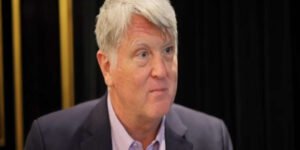Christian Cake Artist Sent to ‘Re-Education’ After Gay Marriage Flap
Imagine being ordered to go against your religious beliefs, and if you refuse, you could be arrested, fined or sued.
That happened to the Christian owner of a Colorado bakery who now must make wedding cakes for gay couples.
However, the owner is standing his ground, and his action is inspiring people around the world.
Discriminating Accusation
The sign on the door reads “Celebrating 20 Years of Great Cakes!” For two decades, Masterpiece Cakeshop has created art in the form of baked goods that keeps customers coming back.
From cookies and cupcakes to signature cakes, Jack Phillips and his daughter Lisa have transformed their bakery into a studio. Phillips said it’s all inspired and motivated by his faith in Jesus Christ.
“It’s the most important thing that I think about throughout the day. When I wake up, when I go to work, I want to know that what I’m doing is pleasing to Him, that I honor Him and His Word, because that’s the most important thing,” Phillips said.
But Phillips’ Christian faith landed him in trouble with the law. His crime: adhering to his biblical belief that marriage is only between one man and one woman.
In 2012, a homosexual couple sued the baker after he declined to make a cake to celebrate their marriage. An administrative law judge ruled against him, and the Colorado Civil Rights Commission agreed.
The commission stated Phillips’ refusal went against the state’s public accommodation law. It requires businesses to serve customers regardless of their sexual orientation.
In a public statement, one member of the Civil Rights Commission said, “I can believe anything I want, but if I’m going to do business here, I’d ought to not discriminate against people.”
“I didn’t discriminate against anybody,” Phillips countered. “Like Nicolle (Martin, his attorney) said, I’ve chosen not to make cakes for same-sex weddings. I told David and Charlie when they came in that I would sell them cookies and brownies and birthday cakes and shower cakes. I just don’t do the same-sex wedding cake. So I did not discriminate against them, just that event I’ve chosen not to participate in.”
His attorney, Nicolle Martin, said the Commission violated PHillips’ First Amendment rights. She’s taken the case to the Colorado Court of Appeals.
Conform to Comply
The Civil Rights Commission’s order requires Phillips and his staff to make cakes for same-sex celebrations if asked.
He must also re-educate his staff about Colorado’s Anti-Discrimination Act. Under that law, artists must endorse all views.
The order also requires him to put in place new policies to comply with the Commission’s order.
In addition, he will submit quarterly “compliance” reports to the government for two years.
According to Alliance Defending Freedom, the reports must include the number of customers declined a wedding cake or any other product. They must also include why it was declined “so to ensure he has fully eliminated his religious beliefs from his business.”
“The government has chosen which message it favors in this case; I think the state has made it very clear,” Martin said.
“Jack’s First Amendment rights, Jack’s freedom to express himself or more importantly, not express himself, must bow to the complainants’ message,” she said. “And all I can say is what that looks like to me is something very frightening, and that’s nothing more than diversity through conformity, and that’s not diversity at all,” she added.
First Amendment Disappearing?
Phillips’ case is one of a handful in which complainants sued private businesses for refusing to accommodate gay couples getting married.
It also helped lead to controversial proposals in several states allowing businesses to decline service based on the religious beliefs of owners.
“This case is not about and it has never been about the young men that came in here almost two years ago asking Jack to design and create their cake,” Martin said. “This case has always been about the message that that cake expresses, what that cake communicates.”
“It’s surprising,” Phillips said. “This is not what they taught us in civics class … they could do this to you. They do this in other countries, not here.”
“So Jack stands on the First Amendment. In this case, we’re going to learn whether the First Amendment has a future in America,” Martin said.
In a country founded on freedom of religion and speech, that’s a future important to all Americans.







































